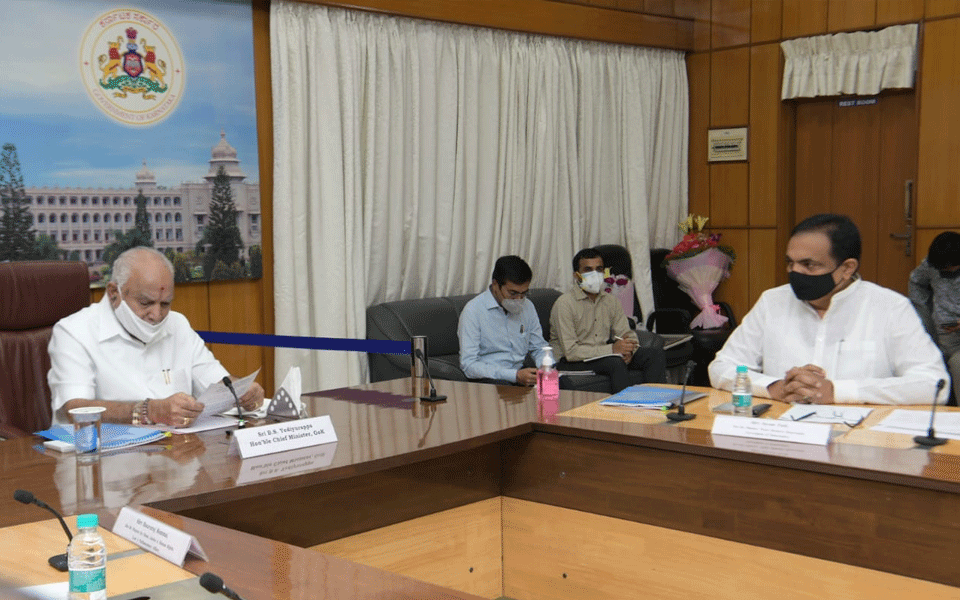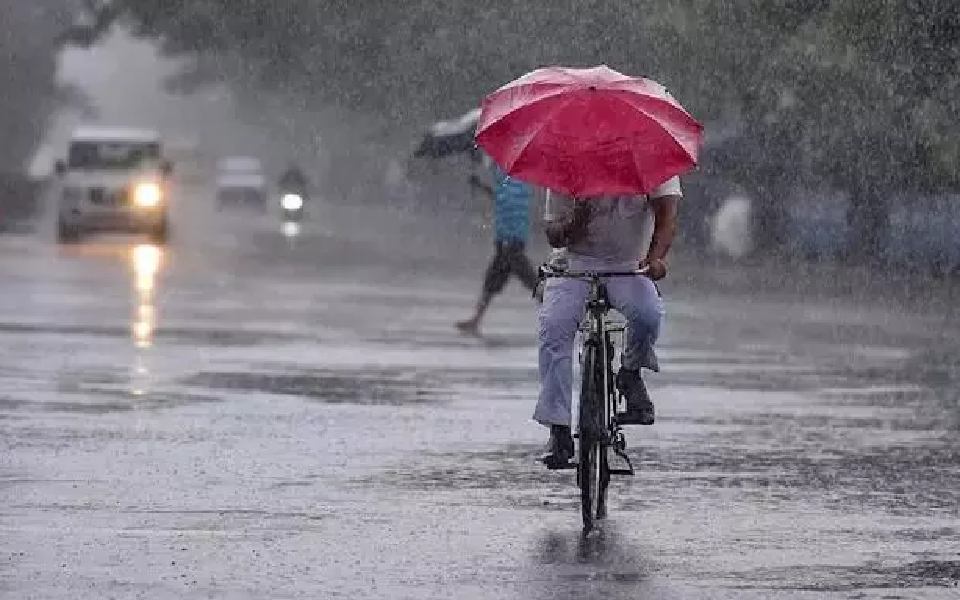Mumbai: Maharashtra minister Jayant Patil on Saturday said the Karnataka government has decided to set up real-time data acquisition system (RTDAS) at its Almatti and Narayanpur dams to monitor the water level, which will help prevent recurrence of the flood situation that Kolhapur and Sangli districts of Maharashtra faced in 2019.
Patil, the state Water Resources Minister, said this after holding a high-level meeting with Karnataka Chief Minister B S Yediyurappa and its Home Minister Basavaraj Bommai at Bengaluru to resolve the water-related issues between the two neighbouring states.
Unprecedented rainfall had wreaked havoc during the 2019 monsoon season in western Maharashtra, especially in Kolhapur and Sangli districts, claiming over 60 lives. After the floods, it was alleged that the Karnataka government was responsible for it as it did not release water from the Almatti dam on the Krishna river and its backwater led to flooding in the Maharashtra districts.
Talking to reporters after the meeting, Patil said, Maharashtra already has a real-time data acquisition system in Krishna river basin, which helps the officials gauge the pace of water level rise due to rains. It helps them take decisions, like the release of water from dams, to avoid flooding."
"Now, it has been decided to set up similar systems at Almatti dam and Narayanpur dam (Basava Sagar) for better coordination between officials in both the states, he said.
The RTDAS was installed in Maharashtra with the World Bank funding. The system started functioning around six-seven years back, wherein automated rain gauge provides precipitation data in real-time to the water resources department along with the rising water levels and in-flow into a dam.
We need to dynamically manage Almatti dam water level and rise in the river water level. If it is dynamically monitored and managed, we will be able to overcome the flood situation, Patil said.
This system, once set up in Karnataka's Almatti and Narayanpur dams, will help the officials of both the states overcome the possibility of floods. In case Maharashtra has to release water from its dams as a precautionary measure, it will inform the Karnataka officials who would accordingly lower their water level in Almatti and Narayanpur dams.
This alleged lack of communication in 2019 had resulted into Maharashtra releasing lakhs of cusecs water into river beds that flooded the villages on the banks. Later, Karnataka also had to discharge similar amount of water these dams, which had caused havoc there as well.
Krishna river originates in Satara district and flows through Sangli and Kolhapur before entering Karnataka. The Almatti dam in Karnataka has been a bone of contention as late discharge of water from the dam is said to be behind the flooding in Kolhapur and Sangli districts in 2019 as well as in 2005, which not only claimed several human and animal lives, but also caused large-scale loss to the agriculture sector.
Patil's meeting with the Karnataka CM and ministers was aimed at improving coordination between the two states over flood management. Last year, a delegation from Karnataka had visited Maharashtra as part of it.
Let the Truth be known. If you read VB and like VB, please be a VB Supporter and Help us deliver the Truth to one and all.
Batumi (Georgia), Jul 26 (PTI): Young Indian International Master Divya Deshmukh held her nerves to hold stalwart Koneru Humpy to a draw in game 1 of the FIDE Women's World Cup final, with both players having their share of opportunities to take the lead here on Saturday.
The draw with black means Humpy, the two-time World Rapid champion, holds a slight edge going in the second and final game under the classical chess rules in the two-game mini-match, and should the deadlock continue, games of shorter duration will be played to determine the winner.
Humpy employed the Queen's gambit accepted as black and it turned out to be a pretty fascinating game right out of the opening as Divya, 19, came up with a piece sacrifice early to deny the black king the right to castle.
Humpy was the first to err and, according to computers, Divya had things under control on the 14th move. However in her bid to recover the extra material, the Nagpur girl, who has secured a place in the Candidates tournament with her sterling performance here, missed a promising continuation.
What followed the exchange of all minor pieces and the ensuing queen and rook endgame gave enough counter play to both players. The game was eventually drawn after Humpy sacrificed her rook to force perpetual checks.
"The game saw an extremely sharp battle with the game ending in a draw in 41 moves. On move 7, Divya made her aggressive intentions clear by offering another pawn,
which looked like home preparation. Humpy made a practical decision of refraining from taking the pawn and a balanced position was reached by move 10 by white," said Grandmaster Pravin Thipsay, an Arjuna awardee and the first Indian to get a chess Grandmaster norm.
"However, instead of developing the undeveloped Knight, Humpy retreated the centralised Knight on move 10, giving huge positional advantage to Divya. Divya could have gained huge positional advantage on the 12th move by moving a rook. However, she chose to play for King side attack by sacrificing a piece instead.
"Humpy, too, erred at this stage and instead of moving the King to Queen side, moved it to the King side. Divya, on move 14, could have obtained a crushing attack by threatening a mate by developing her Queen. Instead she chose to exchange a pair of Bishops first, which enabled Humpy to defend her King by returning the piece," said Thipsay.
"Players thus reached a balanced Queen and two Rooks ending. Divya continued to play ambitiously and tried to attack Humpy’s King but the latter defended accurately and the game was drawn in 41 moves by perpetual check," he added.
In the play-off for the third place, Chinese players Zhongyi Tan, the former women's world champion and top seed Lei Tingjie also decided to split points out of a Queen’s gambit declined game.
The opening raised visions of a close contest between the two but having been knocked out of title race in the previous round, none of them wanted to take any huge risk. It was still a middle game when the players shook hands.
With the top two positions sealed for the Indians, the berth to the next Candidates is also assigned, while the player finishing third will also get an entry to the premier event scheduled for 2026.
Results: Divya Deshmukh (Ind) drew with Koneru Humpy (Ind); Zhongyi Tan (Chn) drew with Tingjie Lei (Chn).





